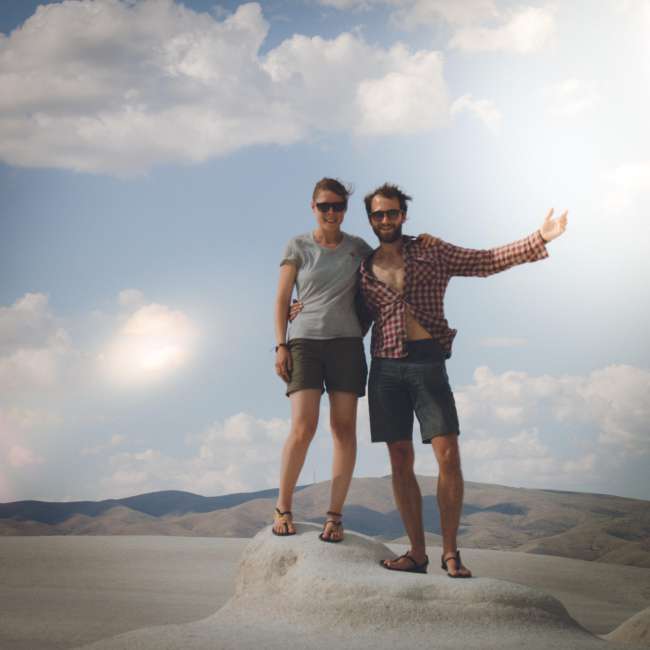Great Georgia
प्रकाशित: 29.06.2016
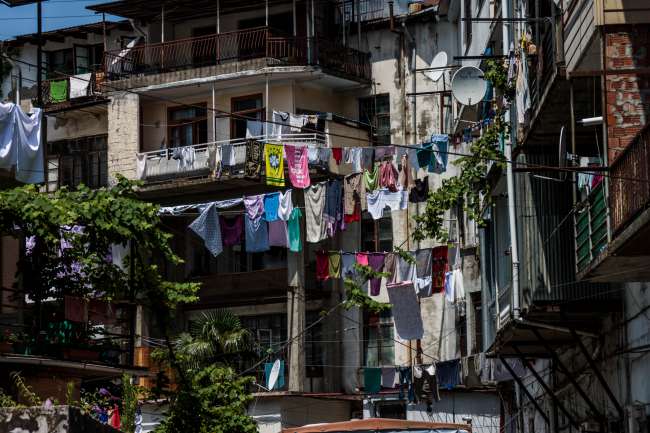
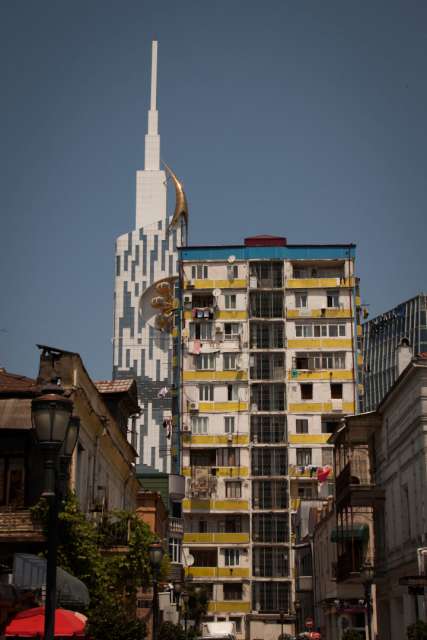
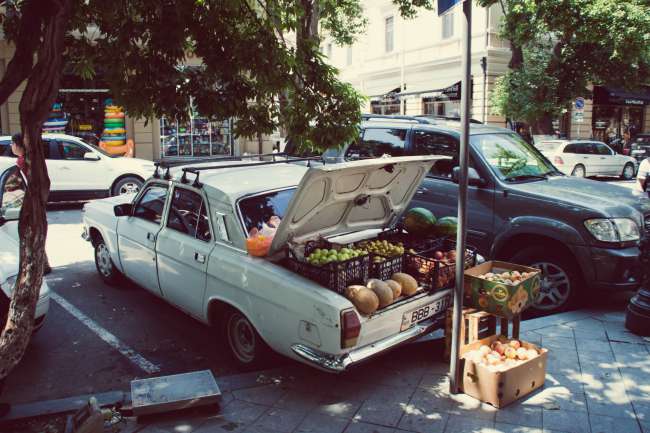
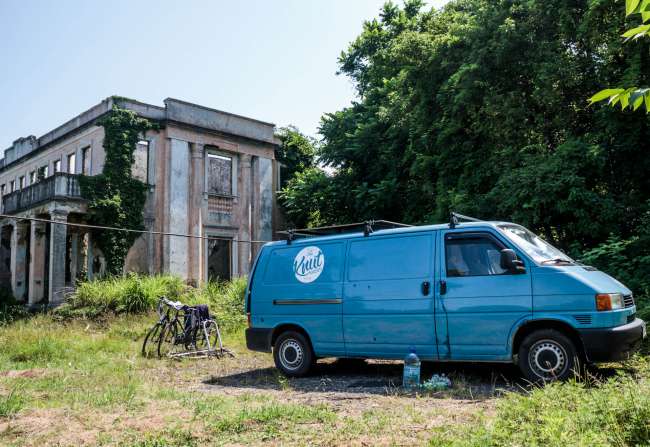
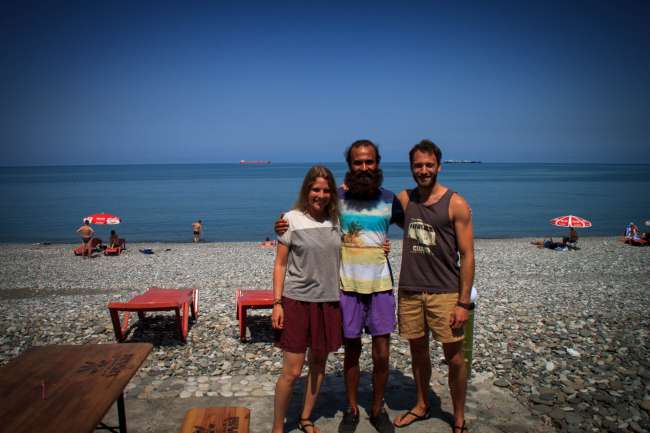
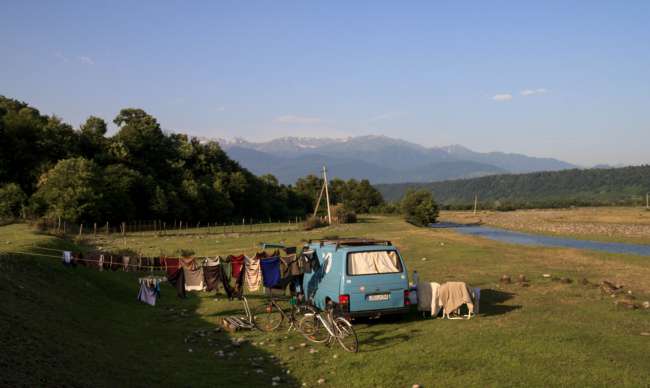
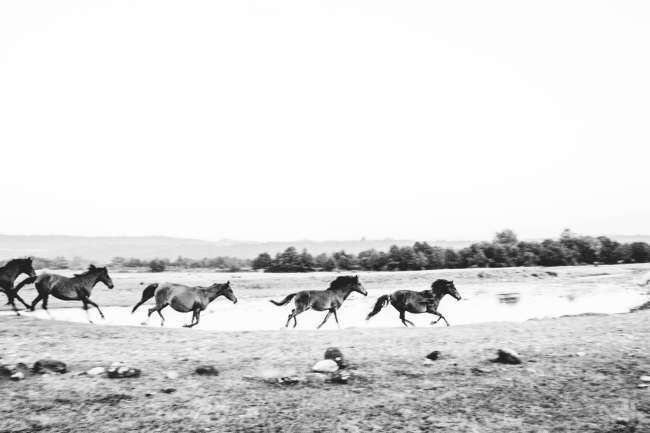
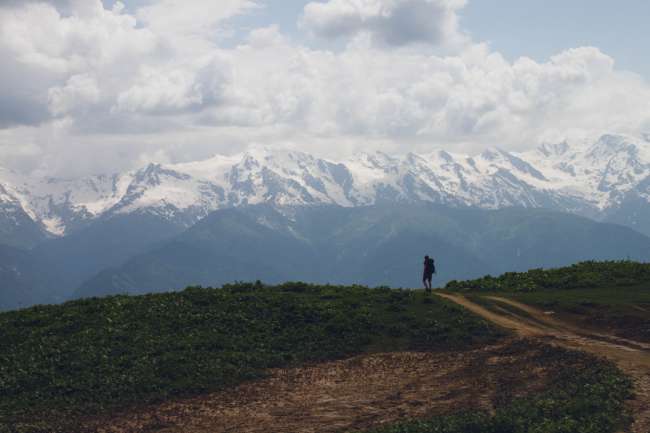
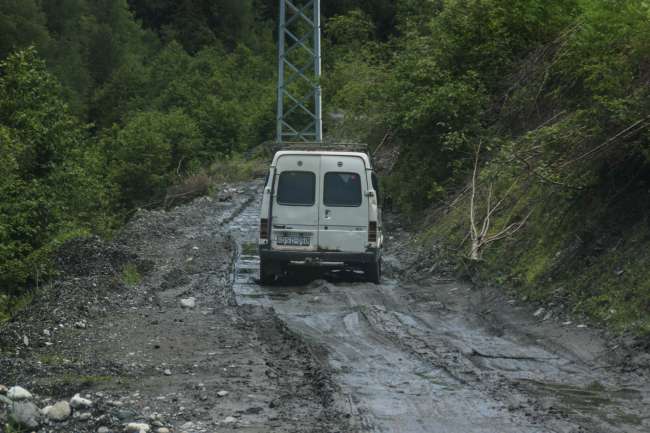
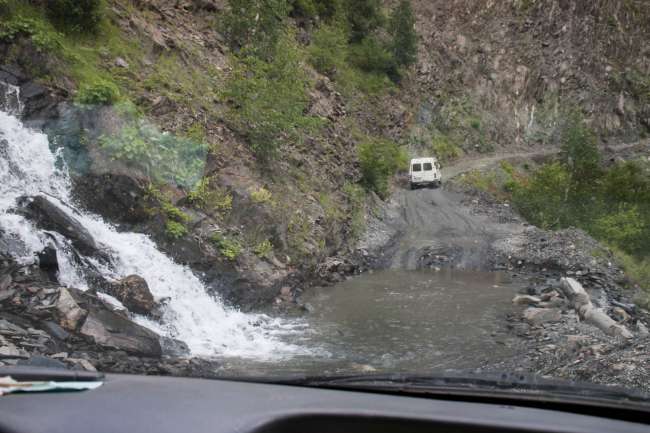
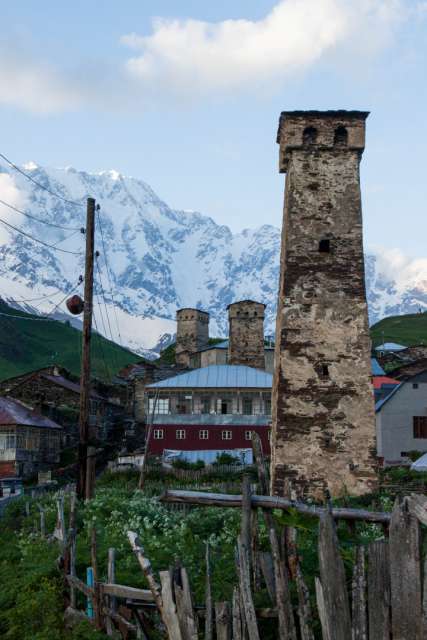
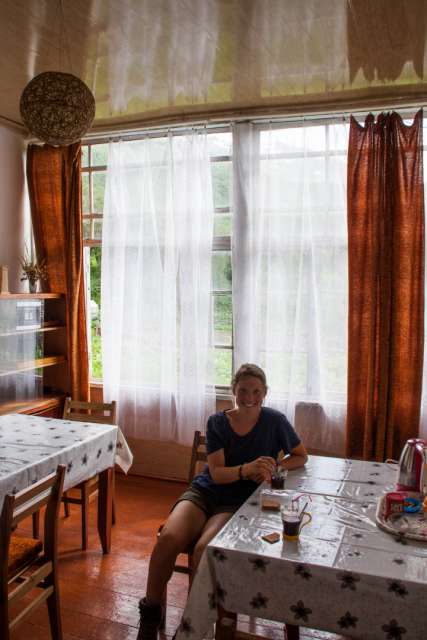
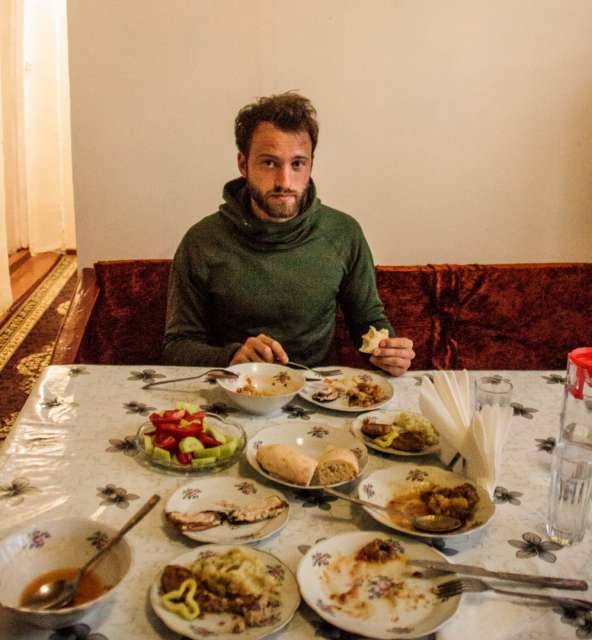
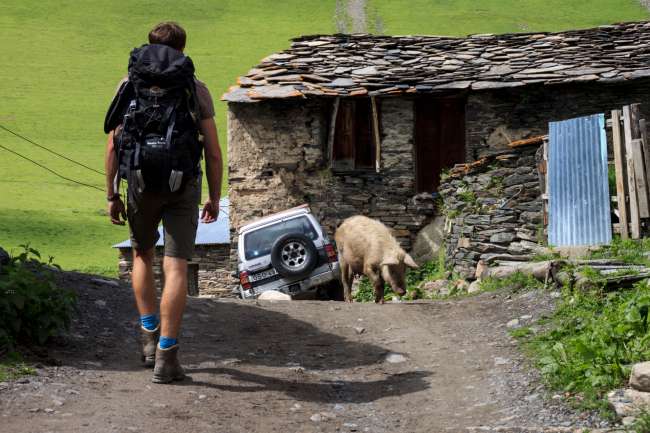
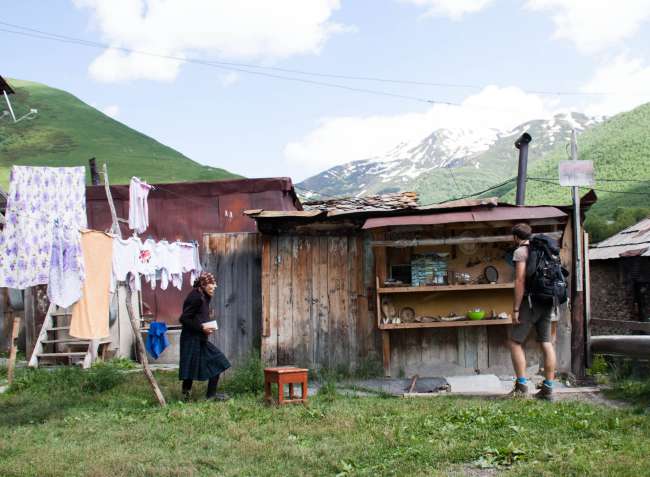
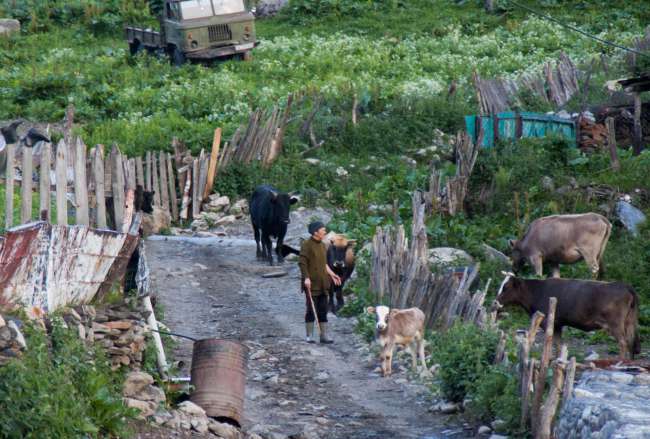
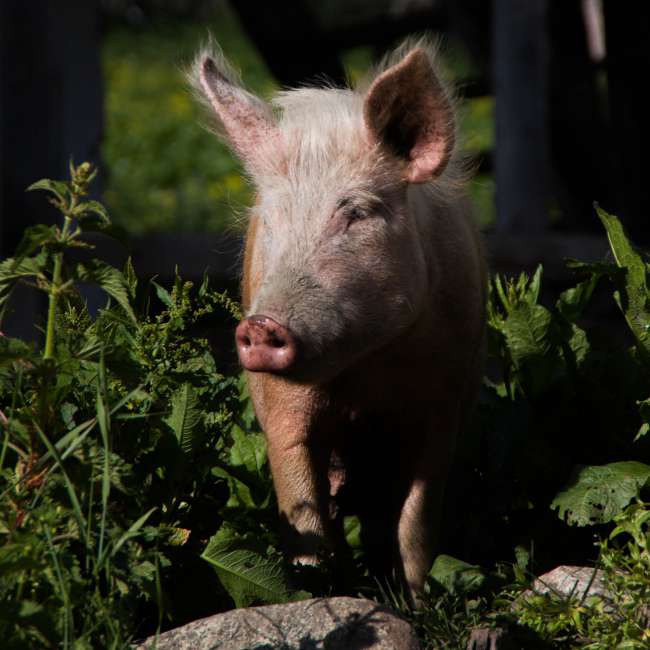
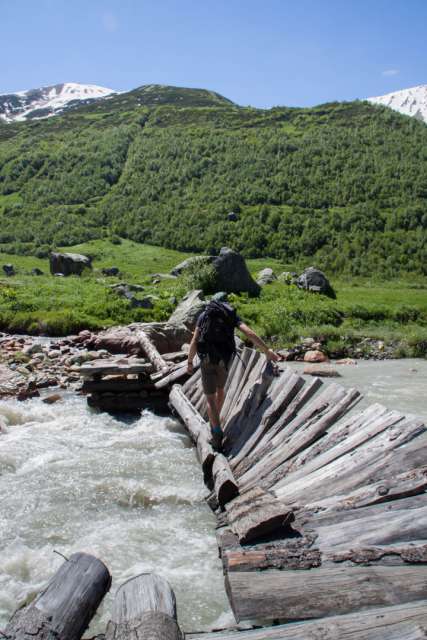
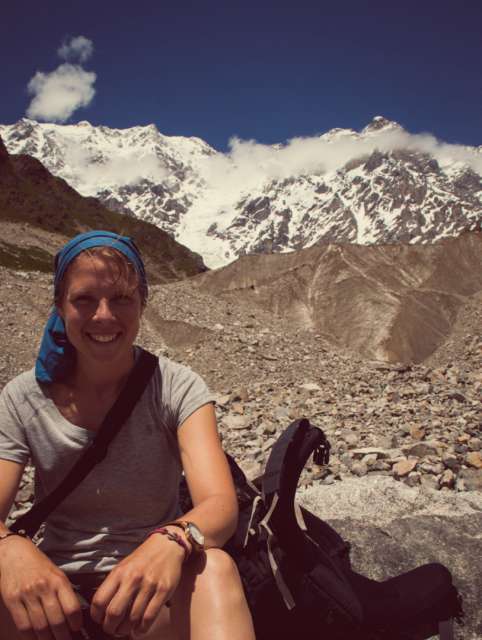
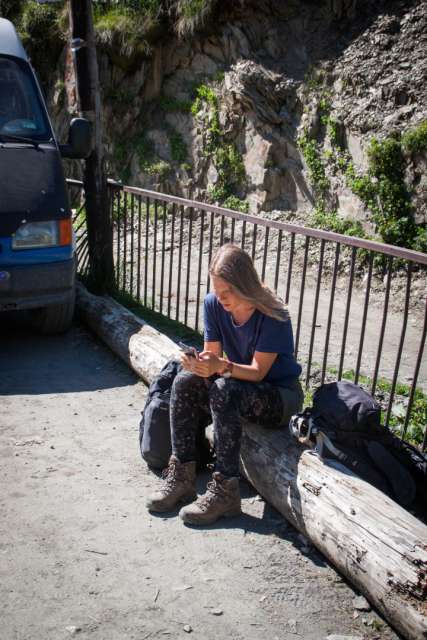
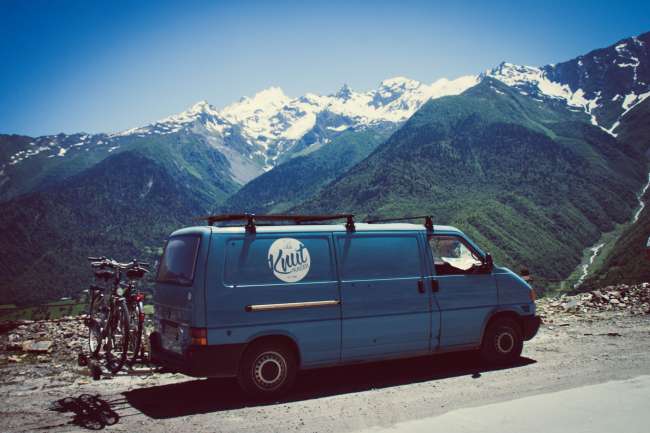
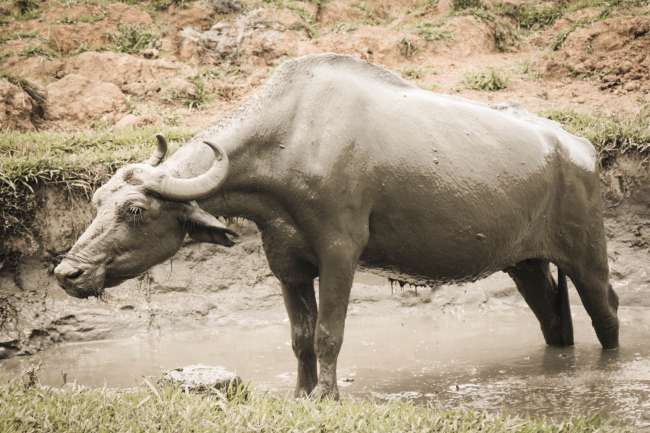
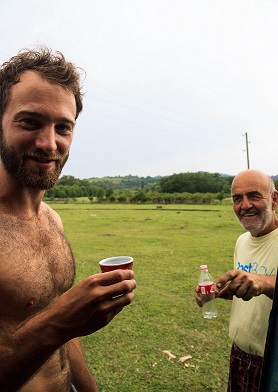
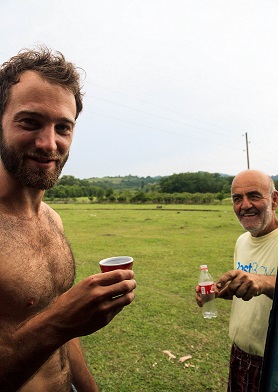
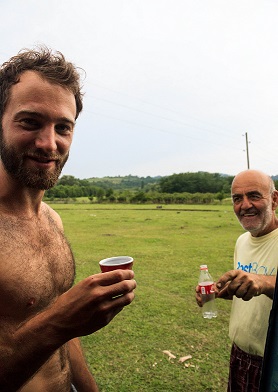
समाचारपत्रस्य सदस्यतां गृहाण
We are currently sitting near Zugdidi in Georgia, in the middle of tropical greenery by a small river. Not far from us, water buffaloes graze and hard work is being done in the field with a plow and horse. This morning we were visited by a Georgian who joyfully took one of our bikes for a test ride. He zoomed around the meadow with such enthusiasm that we briefly wondered if he intended to come back. But of course he did, and as a thank you, we received schnapps (before breakfast). Knut was also inspected, and from the multiple nods and thumbs up, we deduced that he was found to be very good.
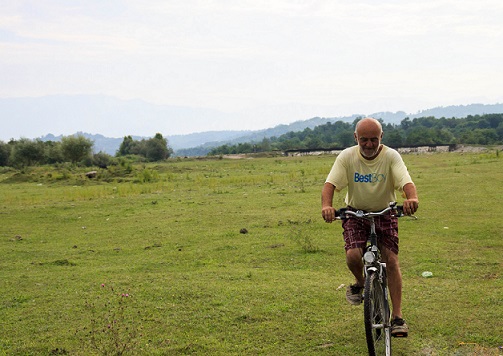
In the distance, the mountains of the Caucasus glow, where we spent the last few days. With Knut, we drove all the way to Mestia, a beautiful place in the Svaneti region known for its many watchtowers. Unfortunately, in recent years, due to the construction of a larger road, tourism here has increased significantly. The result is large hotels and restaurants, which have greatly affected the charm of the place. Nevertheless, the nature is still beautiful. We went on a challenging day hike from there and the next morning drove further into the mountains to Ushguli. We debated whether to drive the infamous "road" with our car or not... and we are very glad we didn't! Ushguli is a village community at an altitude of 2100 meters and is the highest inhabited village in Europe. It snows here for 6 months of the year, which means the village is cut off from the outside world for half of the year. We spent two nights in a small guesthouse and were treated to the best Georgian village cuisine. We hiked to the Glacier Shkhara with Lukas and Ruta from Lithuania.
On the streets of Georgia, we regularly encounter a whole petting zoo. It is completely normal to see cows, goats, geese, pigs, horses, and turkeys, along with their offspring, walking or lying on the road. They are not bothered by cars at all, as they simply drive around them. The driving style of Georgians and their cars is also something else. There is even a "honking language" here, where a short honk means "hello," etc. and we engage in lively conversations using it!
We started our journey in Georgia a few days ago near Batumi, the seaside resort of Georgia. There are huge skyscraper hotels with golden decorations right next to semi-decrepit prefab buildings. This is mainly where Russians vacation. In search of a suitable place to sleep outside the city, we were offered an old property with a ruined house, not far from the beach. The owner conveyed to us in sign language that we could park our "Mashina" here for as long as we wanted. Nearby, we discovered the very simple but beautiful beach bar of four brothers, with the oldest of them being just 18 years old. Their parents have passed away, so the wooden hut has become their home and workplace at the same time. We were warmly welcomed and well taken care of with beer. The beach bar also serves as a transitional home for Firuz, who walked there from Azerbaijan and found a good spot for his tent, and he helps the boys expand the bar.
As the temperatures rise significantly, a few days ago we inaugurated our rear hatch spacer. It is a small metal rod that is clamped into the rear hatch lock, creating a gap for fresh air, especially for the night. However, in the morning when we wanted to leave, it stubbornly refused to loosen. The result was: the rear hatch was neither fully open nor fully closed - doesn't sound so bad at first, but it's really annoying in everyday van life! Just when we were about to have the entire lock removed at a workshop, Lucas luckily remembered the good old Swiss pocket knife with a metal saw. After about an hour of sweaty work, the rear hatch was finally open again!!
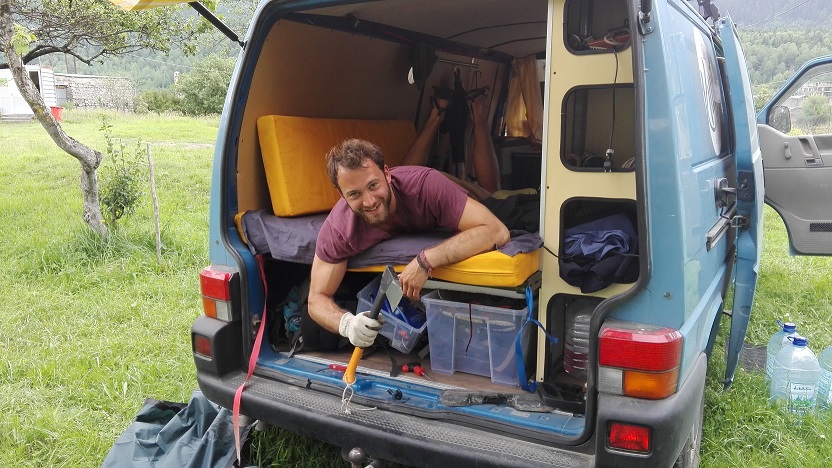
And we have learned that it is not a good idea to park Knut directly in an ant highway, as they are completely indifferent and continue their path, even through a VW bus. There are not as many of them travelling with us anymore, but some still emerge now and then.
समाचारपत्रस्य सदस्यतां गृहाण
उत्तरम्
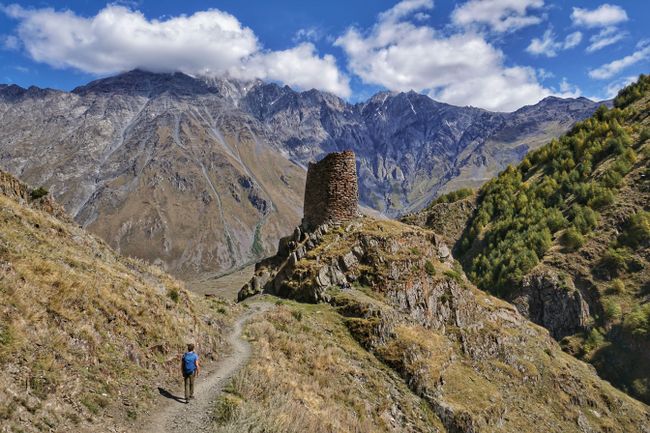
यात्राप्रतिवेदनानि जॉर्जिया

